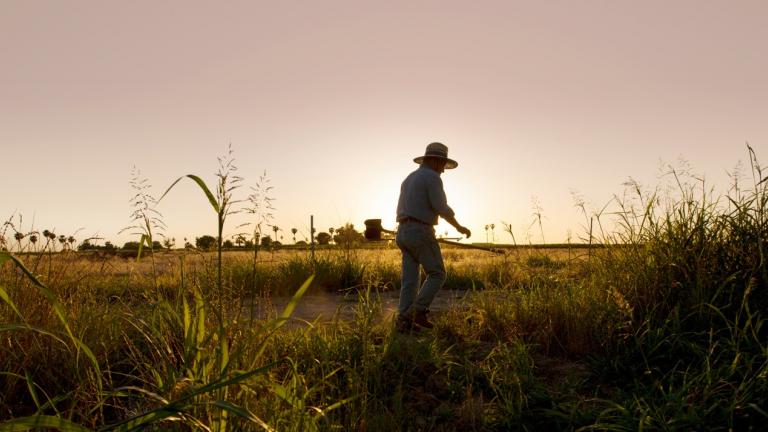
The wind finally blew the other way last night and kicked out the smoke from the burning Sierra. Down here in the flatland of California, we used to regard the granite mountain as a place apart, our getaway. But the distance is no more. With all those dead pine trees in thrall to wildfire, the Sierra, transmuted into ash, is right outside our door.
We have learned to watch the sky with an uncanny eye. We measure its peril. Some days, we breathe the worst air in the world. On those few days when we can walk outside without risking harm to our lungs and brains, we greet each other with new benedictions. May the shift in winds prevail, I tell my neighbor. May there be only the dust clouds from the almond harvest to contend with. In the meantime, I don’t dare quiet the turbo on my HEPA filters, hum of this new life.
The most brutal of summers in the San Joaquin Valley has come to a rest at last. Since June, the temperature has broken the 100° mark for 67 days, a new record. Drought won’t let go its grip on the land. Eight of the past 10 years have been ugly dry. This October morning, after a month holed up, I decided to leave my house in the suburbs and roam the middle of California, the irrigated desert at its most supreme. Out in the country, I smell fall in the air. To celebrate its arrival, I’m going to visit an old friend, a farmer named Masumoto, who has 80 acres in Del Rey and is putting the last of his raisins in a box.
There is no way to make this drive out of Fresno at harvest’s end, through the dog-tired fields of the most industrialized farm belt in the world, without thinking about water: the idea of it, the feel of it; the form as it falls from the sky as rain and snow, that man captures with his invention and implementation, his magic and plunder, the dam, the ditch, the canal, the aqueduct, the pump, the drip line; the water that gives rise to every animate and inanimate thing that now stretches before my eyes, the vineyard, orchard, cotton field, and housing tract; the water whose too much can destroy us, whose too little can destroy us, whose perfect measure of our needs becomes our superstition and story.
You should know that I have written about the matter of California and water a few times before, and I’m not above borrowing from old refrains. In my hunt for new words, I have driven Highway 99 a thousand times through a valley that geologists call the most-altered landscape by human hands in history. I now see the gashes of fresh alterations. What has been done here, by any means necessary, has been done for the want of water.
Read the full article at: https://www.technologyreview.com/2021/12/16/1041296/california-climate-change-water-drought/






